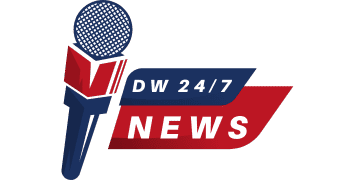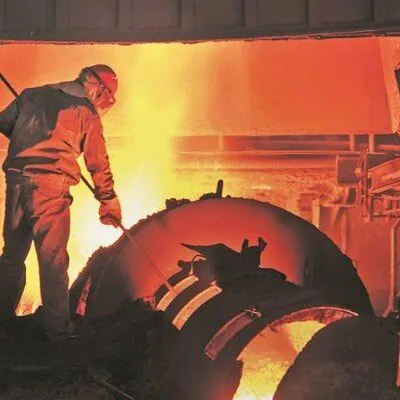[ad_1]
Shares of metal companies were trading lower on Tuesday, down as much as 8 per cent on the National Stock Exchange (NSE) in today’s intraday trade.
Shares of companies operating in the sector were under pressure due to profit booking by investors due to fears of disappointing earnings in the September quarter (Q2FY25) due to weak metal prices, besides the lack of new fiscal measures to boost demand and consumption in the Chinese economy, by the National Development and Reform Commission (NDRC), at a press conference today.
In Q2FY25, metals companies may witness a sequential contraction in margins as analysts model flat quarter-on-quarter (QoQ) sales volumes, while metal prices have seen a correction (with average HRC for steel down 8%/6% year-on-year/Test and average LME aluminum price). decreased by 6 percent quarter-on-quarter but increased by 10 percent year-on-year in Q2FY25).
Also on an annual basis, all metals companies, except aluminum companies, could report a contraction in their margins.
However, the recent stimulus package announced by China has improved sentiment somewhat, ensuring an uptick in Chinese hot-rolled coil (HRC) exports of around $43 per tonne. Additionally, China’s possible reduction in steel production in winter, the expiration of Bureau of Indian Standards (BIS) certification for some steel mills exporting to India, and the planned maintenance shutdown at major South Korean factories are also expected to support HRC prices in the near term, according to analysts.
NMDC, Tata Steel, National Aluminum, JSW Steel, APL Apollo Tubes, Hindalco Industries and Jindal Stainless are down, between 2 and 8 percent on the NSE in intraday trade.
At 9:53 a.m., the Nifty Metal index, the biggest loser among sectoral indices, was down 2 percent, compared with the Nifty 50’s 0.35 percent rise. The metal index fell 3 percent. hundred during the day, after falling for the fourth consecutive day.
Since October 1, the Nifty Metal index has fallen 6 percent, compared to a 2 percent decline for the Nifty 50. Before that, in the calendar year 2024, the Metal index had climbed 28 percent. percent, compared to the 19. percent rise in the benchmark index.
Analysts at Elara Capital expect lower iron ore and coking coal prices to partly offset cost pressure for its hedged steel universe. “However, weak steel prices will likely pose a major challenge. Flat steel prices showed a downward trend for the third consecutive quarter, falling in a range of 5 to 6 percent from a quarter-on-quarter (QoQ),” the brokerage said. » said the company.
This situation was further aggravated by a sharp quarterly decline of 9 to 11 percent in the prices of long and semi-finished products. Thus, the brokerage expects the mixed realization of steel companies to decline by Rs 2,700-3,100 per tonne QoQ in Q2FY25E. Analysts also expect volumes to decline between 2 and 14 percent year-on-year, with Tata Steel being the only exception.
After a sharp increase in the first quarter of FY25, LME aluminum prices slowed in the second quarter, increasing around 10% year-on-year (y-o-y), but down around 6%. quarter-on-quarter.
Analysts at Elara Capital expect Hindalco Industries’ operations in India to offset the negative impact of weak aluminum prices through better volume, hedging strategy, higher premium and better production of downstream products.
Additionally, Novelis’ EBITDA per tonne could decline by approximately 4 percent year-on-year and approximately 5 percent quarter-on-quarter, due to lower volumes, weak pricing and disruptions in its Swiss factory. Overall, the brokerage expects consolidated EBITDA margin to expand by around 300 basis points YoY and around 25 basis points QoQ.
However, the start of a busy construction season in the domestic market is expected to boost demand, supporting steel prices. Besides, falling coking coal and iron ore prices are expected to ease pressure on profit margins, providing relief to steelmakers, the brokerage said in its quarterly sector overview.
The increase in Chinese HRC prices transformed the import parity premium of domestic HRC prices over Chinese prices of approximately 7 to 8 percent in September 2024 into an import parity reduction of about 3 percent at present.
“This will essentially help domestic HRC prices bottom out and stop further price declines in the near future. Although the impact of this Chinese stimulus on steel spreads could be neutral as the Prices of steel raw materials have also increased,” said Axis Securities’ Metals & Mining Results Overview for Q2FY25.
First publication: October 8, 2024 | 11:09 a.m. STI

